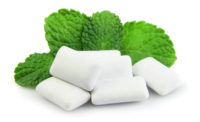As demand for chocolate rises, leaders in the industry focus on creating a sustainable cocoa supply chain by helping to improve farming techniques and empower farming communities.
Consumers love chocolate, there's no doubt about that.
Globally, chocolate demand is on the rise, and unless chocolate companies do something to help the cocoa-growing industry, demand will soon outpace supply.
Cocoa, after all, is a labor-intensive crop grown mostly in developing countries. Cocoa farmers face a rash of problems, from aging trees and pests to lack of training and resources. These challenges make it hard for individual farmers to produce large amounts of cocoa, which in turn means they can't generate income above a subsistence level. It leaves farmers unable to invest in their farms, families, and communities and prevents them from raising themselves out of poverty. The consequence is a diminishing supply of cocoa every year.
To help combat the cycle and support cocoa farmers, leaders in the industry have committed to the World Chocolate Foundation's CocoaAction Strategy, launched in May 2014. Major companies like ADM, Barry Callebaut, Blommer, Cargill, ECOM Agrotrade Ltd., Ferrero, The Hershey Co., Mars, Mondel..z Intl., Nestlé, and Olam have pledged themselves to the cause.
CocoaAction's goal is to train and deliver improved planting material and fertilizer to 300,000 cocoa farmers by 2020, and empower communities through education, child labor monitoring, and women's empowerment. It brings the world's leading cocoa and chocolate companies together and develops partnerships between governments, cocoa farmers, and the cocoa industry to boost productivity and strengthen community development in Côte d'Ivoire and Ghana.
And many companies have devoted considerable efforts to their own sustainability projects.
Mars, for one, set out to map the cocoa genome to better understand why the crop is so labor intensive and susceptible to disease. The company brought together a mix of partners from industry, government, and academia - including IBM, the USDA, and UC-Davis - for the project, which was completed in 2013.
They've also shared this scientific breakthrough with the industry and Public, believing that knowledge is power and not a secret to be withheld for competitive advantage, according to the company.
And Barry Callebaut has done plenty to help create a sustainable supply chain.
"It started with the need to secure quality, sustainable supplies of cocoa; meeting the needs of customers for sustainably sourced cocoa; and the realization that we need to help cocoa farmers, their families and communities, to become more sustainable," says Jens Rupp, head of sustainability communications, Barry Callebaut. "The Cocoa Horizons initiative was launched in 2012 with CHF 40 million over 10 years, with the aim to improve farmer livelihoods. Last year we created the Cocoa Horizons Foundation to scale impact and drive change in cocoa sustainability globally."
Barry Callebaut believes cocoa production is sustainable when farmers earn an equitable income, engage in responsible labor practices, safeguard the environment, and can provide for the basic health and education needs of their families.
The company works with more than 70,000 farmers in West Africa and Indonesia to implement sustainability programs, while conducting research in Malaysia focused on intercropping, pest and disease management, soil management, and rehabilitation.
Programs include training farmers in good agricultural practices, post-harvest management techniques, optimal use of inputs, crop diversification, farm rehabilitation, as well as basic business skills. Some farmers have also been trained in support services like tree pruning and spraying, which they can provide to other farmers in a safe and efficient manner. Other projects like mobile banking, funding education, women's empowerment programs, and health insurance schemes help provide for farmers' basic needs.
And the Cocoa Horizons Foundation, funded by the purchase of HORIZONS products, contributions from donors and customers, and Barry Callebaut's Cocoa Horizons initiative, has more than 25,000 farmers enrolled in its activities. As of March 9, 2016, the Cocoa Horizons Truck, which visits farming communities and brings farmer training, educational services, and literacy training, has travelled 25,790 km through 182 villages, reaching 76,100 people and providing medical attention for 12,120 people.
Barry Callebaut's commitment to sustainability doesn't extend only to cocoa either. When it comes to other essential ingredients like palm oil, sugar cane, vanilla, sugar beet, dairy, hazelnuts, shea, and soy, the company has published sustainable sourcing policies on every one.
Cargill, similarly, launched the Cargill Cocoa Promise in 2012, which aims to accelerate progress toward a transparent global cocoa supply chain, enable farmers and their communities to achieve better living standards, and deliver a sustainable supply of cocoa.
"With the right investment, we have proven cocoa productivity can increase significantly," says Taco Terheijden, director of cocoa sustainability, Cargill Cocoa and Chocolate. "For example, because of work through the Cargill Cocoa Promise, 58,000 farmers are now using pest and disease management techniques and products, resulting in a 23 percent average yield improvement and a 56 percent increase in yields achieved by farmers using fertilizers correctly."
In 2015, 90,000 farmers attended 2,700 Farmer Field Schools, receiving training to help optimize production and reduce their impact on the environment.
"The Cargill Cocoa Promise also extends beyond promoting sustainable cocoa production," says Terheijden. "For example, through the reach of the Cargill Cocoa Promise, 97 percent of children enrolled in the program in Ghana have stayed in school for at least five years. And in the last two years, thanks to new infrastructure, primary school enrolment has increased by 4.7 percent." In short, it's a commitment to the world. But when it comes to sustainability, the environment itself is also an important consideration.
Biodiversity, for one, is a key concern for companies like Endangered Species Chocolate.
Founded in 1993, the company intended to spread awareness and make an impact on the growing number of plants and animals that are rapidly disappearing from Earth. It has always supported worthwhile organizations committed to protecting endangered species.
ESC currently operates a 10% GiveBack program, which pledges to donate 10 percent of its proceeds or $10,000 (whichever is greater) to its partner organizations. In the Past three years, this program has donated more than $1.2 million to its chosen beneficiaries.
"Twenty-three years ago the program started with multiple non-profit partners receiving small donations in the form of financial support and product donations," says Kelly Meinken, director of marketing, Endangered Species Chocolate. "Ultimately in 2007, our current program of a three-year term with two GiveBack partners was established."
Each conservation organization must explain how it benefits the preservation of species and habitats, as well as provide information on the species, lands, and communities that benefit from its work. The applicants go through a twostage selection process conducted by ESC's employees.
And not only do ESC's sales benefit conservation programs, but their chocolate is also made with environmentally conscious, sustainably-sourced ingredients. ESC is the first American-made chocolate to use fully traceable Fairtrade cocoa from West Africa. It also uses RSPO and EcoSocial-certified sustainable palm oil and non-GMO cane sugar.
Pursuing certifications like Fair Trade USA, Fairtrade International, Rainforest Alliance Certified, and UTZ Certified is beneficial both to the farmers and to consumers, says Uwe Schnell, business development manager, Cargill Cocoa and Chocolate.
"These certification programs encourage professional farm management and good agricultural practices, and farmers receive a premium for certified crops. In addition, premiums received by farmer organizations from certification are reinvested to support farmer members and their local community," says Schnell. "For consumers, a certification label on product packaging provides independent assurance that their favorite brands source their ingredients responsibly and shows that the product contributes to improved livelihoods for farmers."
Which all goes to show, the love doesn't just come from consumers loving chocolate. It also comes from the chocolate makers loving the communities that supply the world's cocoa.











